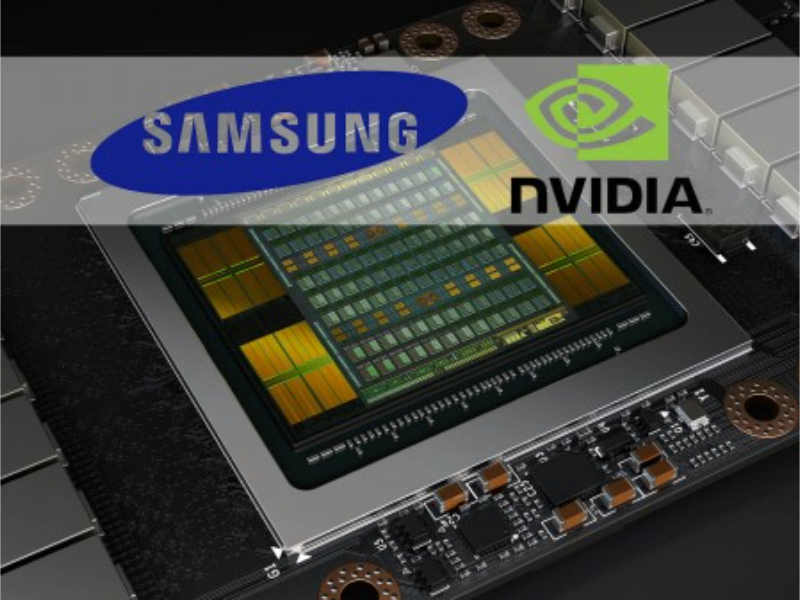- Nvidia has approved Samsung’s HBM3 chips for use in its H20 GPU, designed for the Chinese market and compliant with U.S. export controls.
- Samsung is still undergoing testing for Nvidia’s fifth-generation HBM3E chips, with the current approval limited to the HBM3 variant.
OUR TAKE
Nvidia, the world’s leading GPU manufacturer, is always looking for new technologies and partners to meet market demands. Recently, Nvidia granted approval Samsung‘s the fourth-generation High Bandwidth Memory (HBM3) chips for use in its processors, a decision that not only reflects new developments in technology collaboration between the two companies, but also the adaptability of the global semiconductor supply chain in the face of shifting geopolitical and market demands. This article will delve into the meaning behind this approval and its potential impact on Nvidia, Samsung, and the semiconductor industry as a whole.
–Elodie Qian, BTW reporter
What happened
Nvidia has approved Samsung’s fourth-generation High Bandwidth Memory (HBM3) chips for use in its processors, marking the first time this has occurred. This move comes amid a surge in demand for advanced GPUs, a demand that Nvidia and other AI chip manufacturers are currently struggling to meet.
Samsung’s HBM3 chips, however, will initially be limited to a less complex GPU designed for the Chinese market, known as the H20. This GPU has been developed in compliance with U.S. export controls, which have tightened in response to advancements in supercomputing and AI that could potentially benefit the Chinese military.
It remains uncertain whether Nvidia will extend the use of Samsung’s HBM3 chips to other AI processors. Further testing may be required before such a decision is made.
Samsung is yet to meet Nvidia’s standards for the fifth generation of HBM3E chips, with ongoing testing being conducted. The company has been working towards passing Nvidia’s tests for both HBM3 and HBM3E since last year, addressing issues related to heat and power consumption.
Also read: Samsung’s HBM chips failing Nvidia tests: Heat, power issues
Also read: Samsung says AI will drive technology demand in second half
Why it’s important
The approval of Samsung’s HBM3 chips by Nvidia is significant as the market faces a shortage of HBM3. With only three main manufacturers of HBM – SK Hynix, Micron, and Samsung – diversifying the supplier base is crucial for Nvidia.
The need for HBM3 is expected to grow as SK Hynix, the leading manufacturer in this field, plans to shift its production focus from HBM3 to HBM3E. This move could potentially impact Nvidia’s supply chain.
Samsung, the world’s largest maker of memory chips, has been actively seeking to meet Nvidia’s standards for its HBM3 and HBM3E chips. Despite previous reports suggesting difficulties due to heat and power consumption, Samsung has refuted these claims.
The H20 GPU, which has seen a slow start in the market, is now reportedly experiencing a rapid increase in sales. This is in contrast to the initial pricing strategy, which positioned the H20 below a competitor’s chip from Chinese tech giant Huawei.
SK Hynix, the primary supplier of HBM chips to Nvidia, has been supplying HBM3 since June 2022 and began supplying HBM3E in late March. Micron has also confirmed its commitment to supply Nvidia with HBM3E.
Both Nvidia and Samsung have declined to comment on this development.

